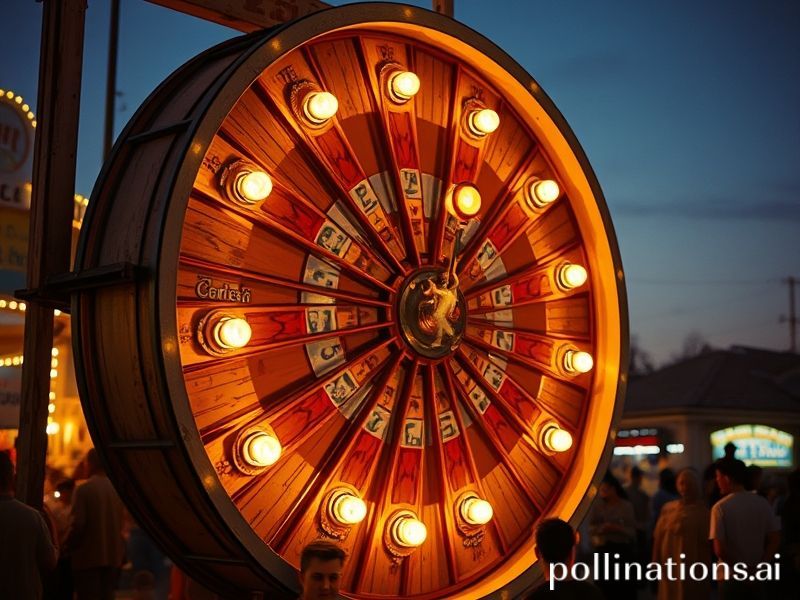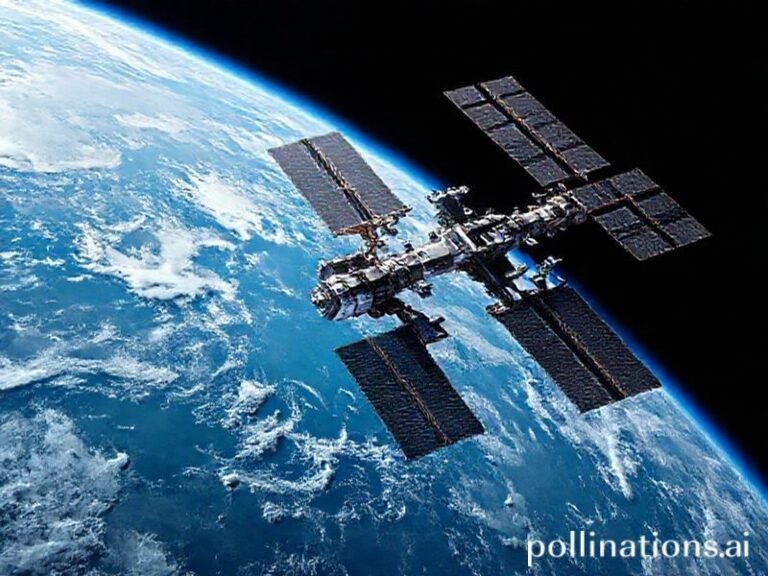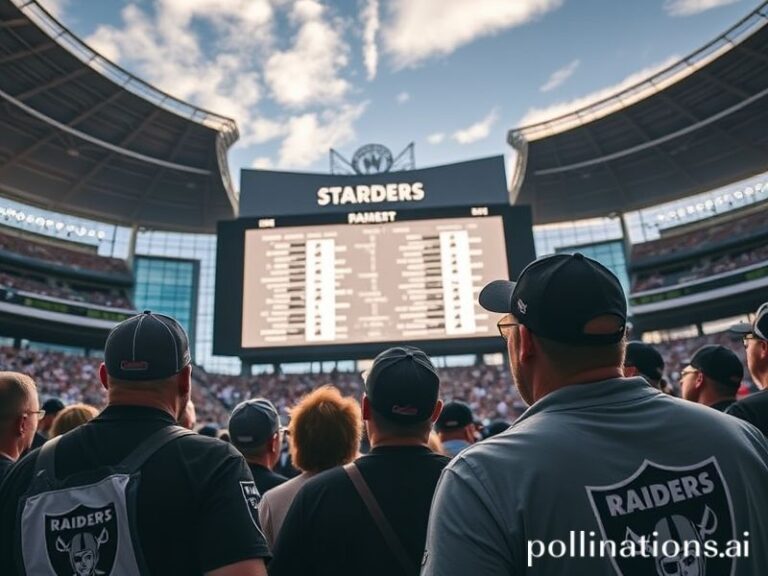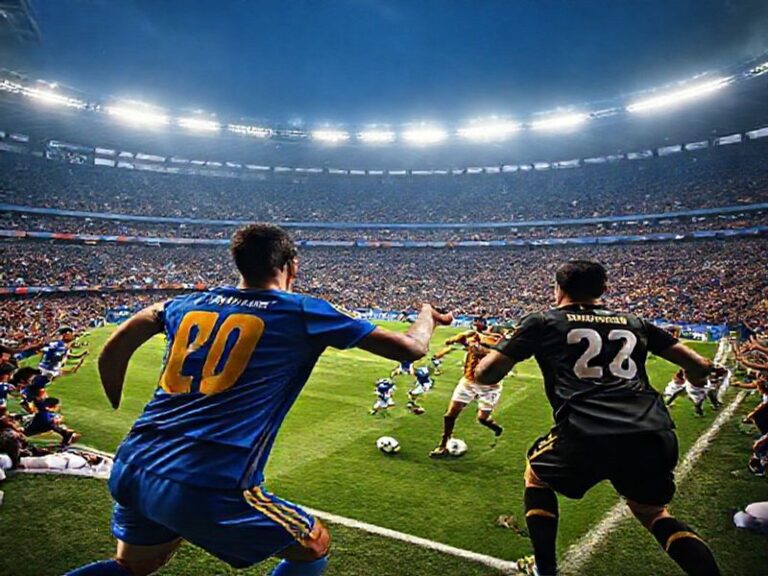Global Spin: How the Wheel of Fortune Became the World’s Most Honest Economic Indicator
The Wheel Keeps Spinning—Whether You’re Watching or Not
By Our Correspondent Somewhere Between Jakarta and Johannesburg
The studio lights in Culver City, California, still blind the next contestant who can’t pronounce “quesadilla,” but the real wheel of fortune hasn’t stopped on any soundstage since 1975. It keeps rolling, gathering passport stamps, sanctions, and the occasional bloodstain. From Kinshasa’s cobalt mines—whose lithium greases the electric dreams of Silicon Valley—to the roulette tables of Macau where Chinese high-rollers hedge against their own property collapse, the metaphorical wheel is the last universally shared cultural artifact that no streaming service can geo-block.
Consider the global supply chain: yesterday’s Indonesian nickel becomes tomorrow’s Tesla battery, which powers the Google server that recommends a Wheel of Fortune clip to a bored teenager in Lagos. Somewhere in that loop, an algorithmic Pat Sajak smiles in 47 languages, proving that late capitalism can sell nostalgia and nickel futures in the same breath. The wheel, it turns out, is less a game show prop and more a planetary gearbox—except no one bothered to bolt on an emergency brake.
In Europe, the wheel spun right off its axle in 2010 when austerity replaced vowels with asterisks on national budgets. Countries queued politely to buy another spin, only to land on “Bankrupt” in Greek. Meanwhile, the United Kingdom—ever eager to monetize self-loathing—exported a British version where contestants win “points” instead of cash, a financial innovation that prefigured Brexit by teaching citizens to applaud imaginary rewards. The French, naturally, refuse to import the show at all, insisting the concept is vulgar. They prefer their own wheel: the Assemblée nationale, which spins every five years or whenever a fuel tax is mentioned.
Head east and the wheel mutates. Japan’s Nippon TV runs a polite cousin called “Quiz $ Millionaire,” where losers receive gift baskets and a bow so deep it doubles as physical therapy. In China, attempts to localize Wheel were quietly retired when censors realized the phrase “I’d like to buy a vowel” sounds suspiciously like a request for civil liberties. Instead, state television now broadcasts “Social Credit Spin,” a game where the wheel decides whether you can board a train. Ratings, insiders report, are phenomenal—mostly because non-viewers are deducted points.
Then there is the literal wheel that never made it to air: the one mounted on migrant boats crossing the Mediterranean. Its segments read “Malta,” “Lampedusa,” “Pushback,” and, for the lucky few, “Asylum.” No studio audience applauds here; only satellite cameras and coast-guard loudspeakers translate human desperation into legal jargon. When the wheel finally stops, European defense contractors sell the footage as “maritime awareness training,” proving that tragedy plus venture capital equals content.
Back in the Americas, the wheel doubles as a monetary policy seminar. Argentines have watched their peso spin from “100 to the dollar” to “pray for an IMF tranche” faster than any puzzle reveal. Brazilian influencers now film themselves buying vowels with stablecoins, a sentence that would have sounded like avant-garde poetry a decade ago. And in the United States—birthplace of the franchise—contestants still squeal over a Chevy Spark while their elected officials auction off the entire interstate system to private equity. The contrast is either heart-warming or grounds for emigration, depending on your threshold for cognitive dissonance.
So what does the international wheel actually tell us? That human beings will queue for a chance to alter their fate even when the odds are printed in 40-point font. That a plastic disc can travel farther on television than most passports ever will. And that, somewhere between the glittering sets and the silent oceans, the same crude mechanism keeps exchanging hope for profit, consonants for collateral, and time for advertising slots.
When the music fades and the credits roll, the wheel doesn’t stop; it merely changes channels. Whether you call it globalization, late-stage capitalism, or simply Tuesday, remember: the only real vowel we’re all buying is “O”—as in “Oh, so that’s how the scam works.” Until it breaks, or until we do, the wheel keeps spinning. Place your bets accordingly.







